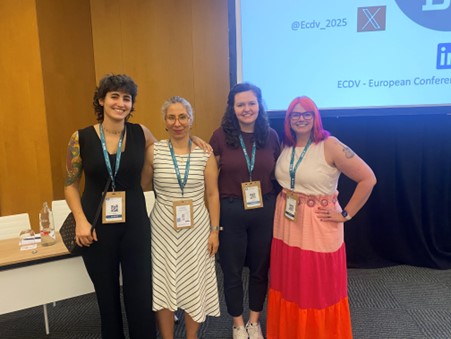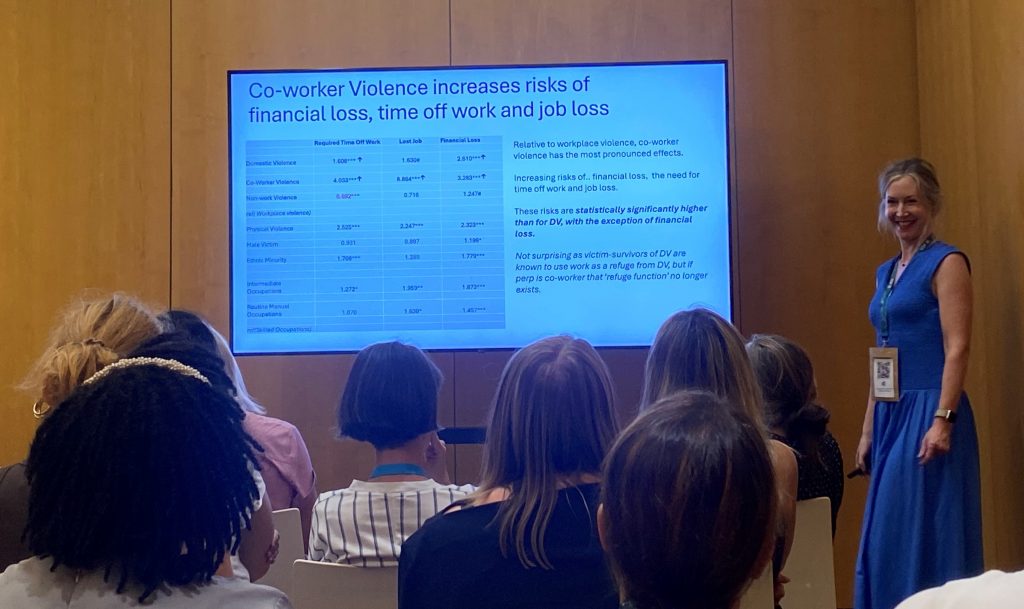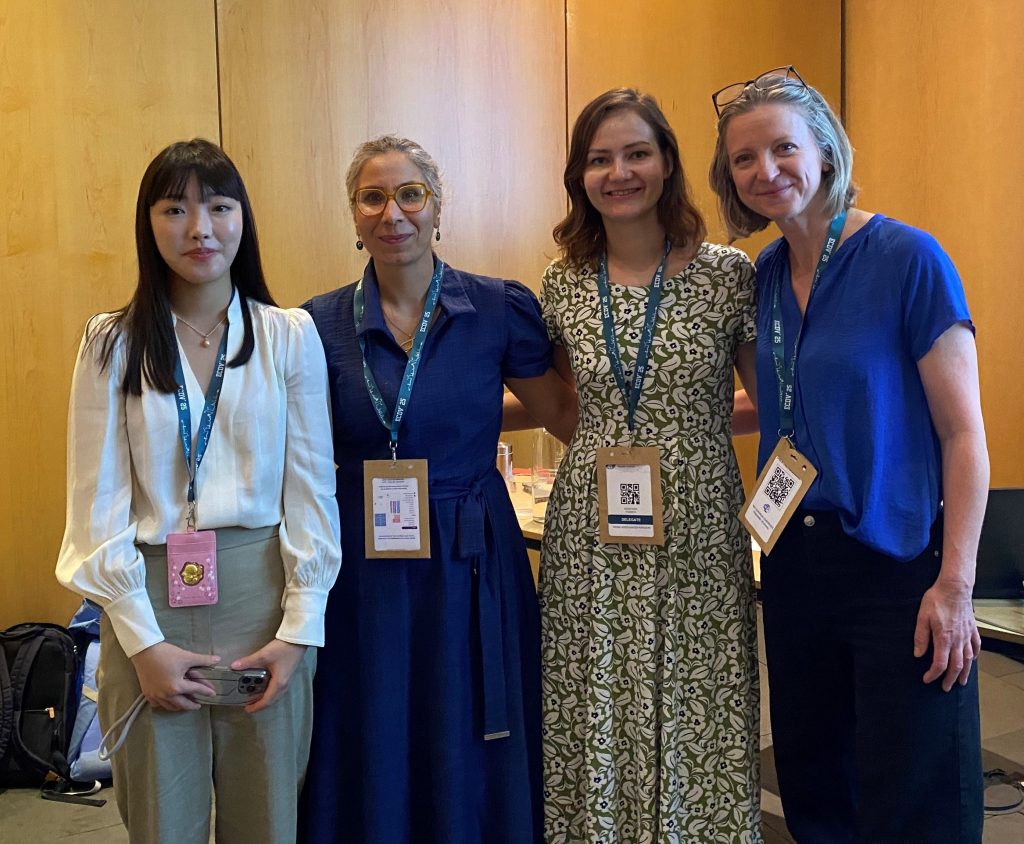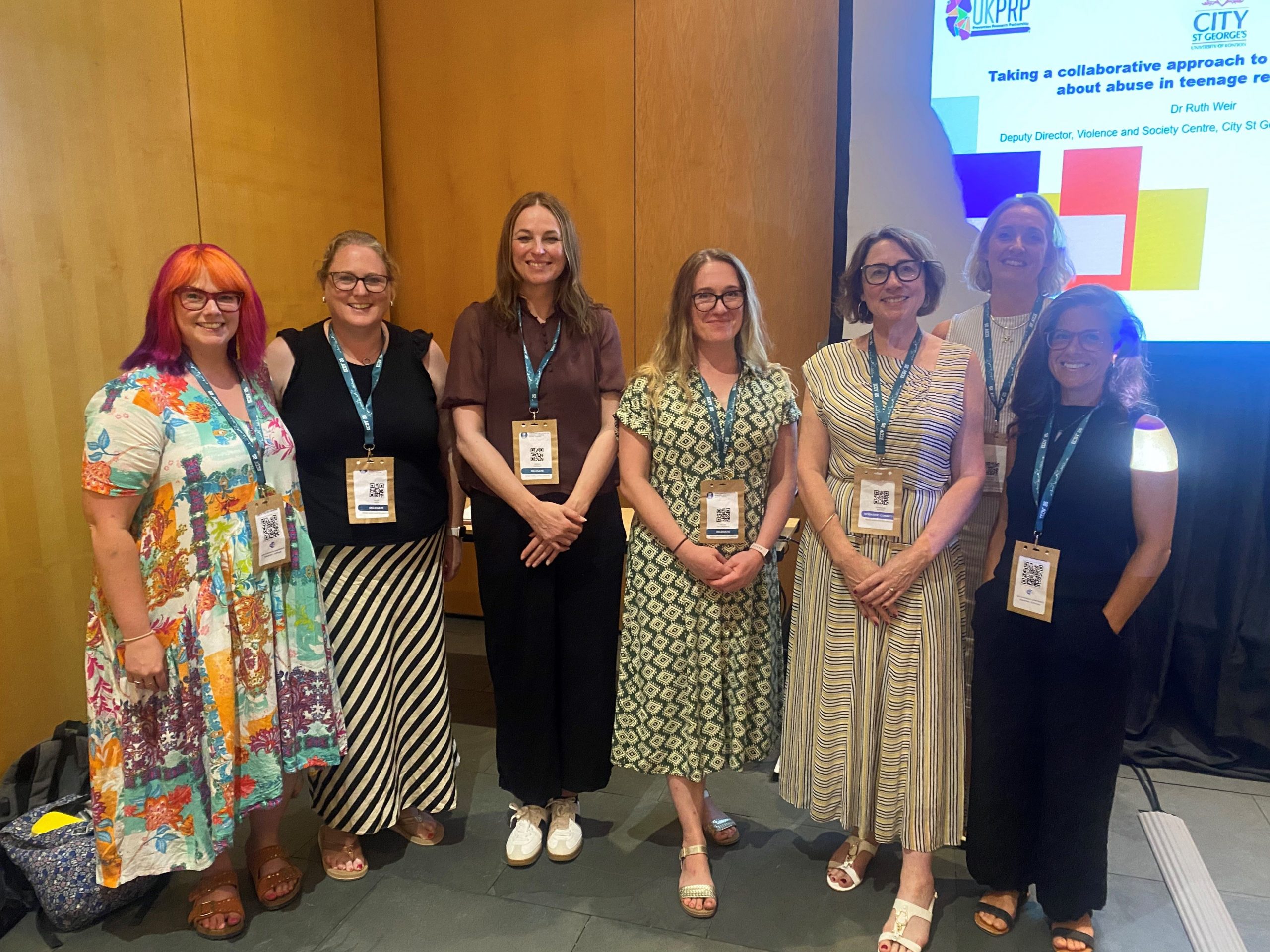VISION researchers present at the European Conference on Domestic Violence
Fourteen researchers from across the UKPRP VISION research consortium attended the September 2025 European Conference on Domestic Violence (ECDV) in Barcelona, Spain. The team presented key findings from their VISION research and several also convened a symposium. It was a successful turnout from the team and a fantastic networking opportunity.
The ECDV conference aims to support and reflect the aims of the Council of Europe’s Convention on Preventing and Combating Violence against Women and Domestic Violence. It was developed to enhance the visibility and connection of individuals working to address domestic violence in Europe, while also benefitting from the contribution of colleagues from outside Europe.
- Anastasia Fadeeva convened the symposium Health perspectives on addressing domestic violence and abuse
- Ladan Hashemi, Anastasia Fadeeva and Sally McManus presented Gender Asymmetry in Physical Health Associations with Intimate Partner Violence (IPV)
- Anastasia Fadeeva and Niels Blom presented Injuries and Seeking Healthcare following Violence: Inequalities by Victim-Perpetrator Relationship
- Vanessa Gash presented Hounded Out? Measuring the Effect of Workplace Violence on Women and Men’s Employment Transitions
- Natalia Lewis and Lizzie Cook participated in the workshop, Community of practice for evidence syntheses on gender-based violence: learning together to enable methodological developments and improve evidence for policy and practice.
- Lizzie Cook presented Analysing sex/gender-related motives and indicators in England and Wales
- Sally McManus presented Commercial Determinants of Health: Opportunities for domestic violence prevention from a public health framework analysis which was written with VISION colleagues Olumide Adisa and Mark Bellis.
- Ruth Weir convened the symposium Violence and abuse in young people’s intimate relationships
- Polina Obolenskaya and Annie Bunce presented Too soon, too late: experience of and professional responses to abuse in teenage relationships
- Ruth Weir presented ADA and its consequences: a rapid systematic review
- Annie Bunce convened the symposium, Exploring multiple vulnerabilities using specialist services’ administrative data: Challenges, opportunities and lessons for the future
- Maddy Janickyj and Leonie Tanczer presented Understanding Technology-Facilitated Abuse: Exploring real-life experiences through Support Services’ data
- Annie Bunce presented The role of vulnerability in the inequity of health outcomes for DVA survivors
- Hannah Manzur presented Disclosure to Formal Agencies and Specialised Support Services among Victims of Intimate Partner Domestic Abuse: Comparing Inequality Patterns, Victim Profiles, and Harms by Disclosure, written with VISION colleagues Annie and Ravi
- Ladan Hashemi and Hannah Manzur presented Ethnic Disparities in outcomes from contact with DVA support services
- Gene Feder convened the symposium Adding to the evidence base that community-based perpetrator programmes work to reduce abuse: Positive findings from REPROVIDE, a UK randomised controlled trial



Photographs:
- Top, left to right: Annie Bunce (VISION, City St George’s University of London), Ruth Weir (VISION, City St George’s University of London), Nicola Farrelly (University of Lancashire), Polina Obolenskaya (VISION, City St George’s University of London), Christine Barter (University of Lancashire), Aisling Barker (Islington City Council and City St George’s University of London), and Katrina Hadjimatheou (University of Essex)
- Middle, left to right: Hannah Manzur (VISION, City St George’s University of London), Ladan Hashemi (VISION, City St George’s University of London), Maddy Janickyj (VISION, University College London), and Annie Bunce (VISION, City St George’s University of London)
- Second from bottom: Vanessa Gash (VISION, City St George’s University of London)
- Bottom, left to right: Angel Deng (Kings College London), and Ladan Hashemi, Anastasia Fadeeva and Sally McManus (VISION, City St George’s University of London)




